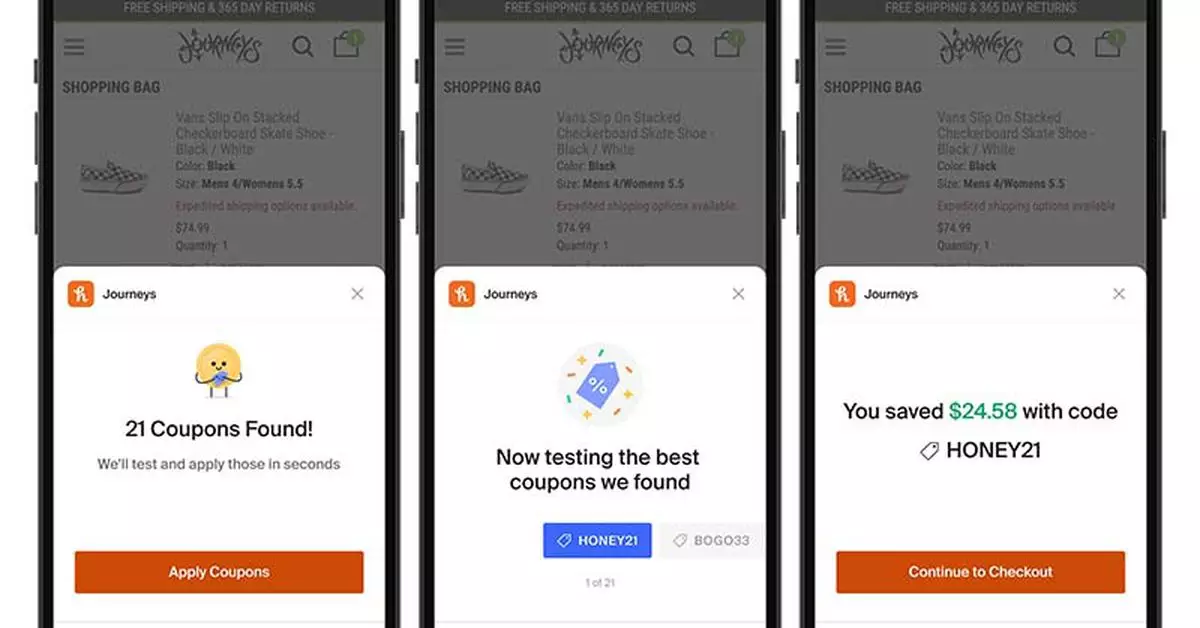As online shopping continues to dominate the retail landscape, tools like browser extensions that promise to enhance the shopping experience are becoming increasingly popular. Among these tools, PayPal Honey has carved out a significant niche for itself, offering users the ability to find coupon codes effortlessly while checking out. However, an emerging narrative questioning the ethical implications of its operations has sparked debate within the tech and influencer communities. In light of recent claims made by YouTuber MegaLag, it is imperative to examine both the functionality of Honey and the allegations against its business practices.
The allure of the PayPal Honey extension lies in its promise of convenience—users can save time and potentially money without manually searching for each coupon code. Upon checkout, Honey attempts to detect any available codes and applies them automatically. However, critics argue that the extension often falls short of its promises. According to MegaLag, users frequently encounter scenarios where Honey either fails to find a valid promo code or resorts to displaying its own Honey-branded codes, which may not offer the best possible discounts.
Given that the initial appeal of Honey is its claim to surface “every working promo code on the internet,” the discrepancy between expectation and reality could leave a sour taste for users. If Honey selectively presents offers based on partnerships with retail clients—thus ignoring superior discounts available through direct web searches—then the service’s foundational value proposition comes into question.
Influencer Revenue and Affiliate Link Ethics
One of the most contentious claims made by MegaLag is that PayPal Honey not only misleads consumers but also undermines the revenue of content creators and influencers. The implication is grave: if a user is directed to a retailer via an influencer’s affiliate link, and Honey replaces that tracking link with its own, the influencer loses potential earnings from the sale. This action not only stifles creator income but also disrupts the expected partnership between influencers and their audience.
This practice raises ethical questions about the mechanics of affiliate marketing—specifically the concept of last-click attribution, which has been defended by PayPal VP Josh Criscoe. While he asserts that Honey operates under industry standards, the situation draws a clear line between following rules and adhering to moral ethics. The fact that other entities, including Linus Tech Tips, have distanced themselves from Honey due to similar concerns further complicates the narrative.
Community Response and Re-evaluation of Tools
In an era where trust between consumers, influencers, and retailers is paramount, the revelations surrounding PayPal Honey have prompted an introspection within the online community. Users who relied on Honey’s convenience may now find themselves questioning whether the extension is truly beneficial or merely a facade for deeper financial strategies.
Responses on social media platforms and forums indicate a growing skepticism towards browser extensions that claim to improve the shopping experience. Some users have advised utilizing discount codes outside of Honey or even using alternative browsers to safeguard against potential affiliate credit hijacking. This community-driven pushback illustrates the shifting dynamics of user engagement and brand loyalty, as consumers grow increasingly aware of the implications of their online shopping habits.
The PayPal Honey controversy is emblematic of a larger trend in digital commerce, where convenience often clashes with ethical business practices. As consumers demand transparency and fairness, brands that fail to adapt may find themselves ostracized by the very demographic they seek to engage. The rise of digital tools should not come at the expense of integrity and mutual benefit for content creators and their audiences.
As scrutiny of PayPal Honey continues, it serves as a cautionary tale for both consumers and businesses alike. While tools that enhance the shopping experience are valuable, they must be employed responsibly and with a commitment to ethical standards that respect all parties involved in the transaction. Ultimately, consumers deserve to know whether they are truly receiving the best deal possible, or if they are unwittingly contributing to a cycle of financial disturbance in the influencer economy.

